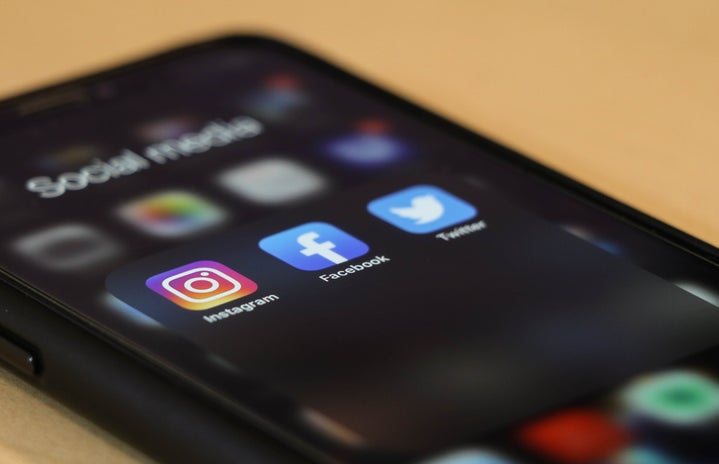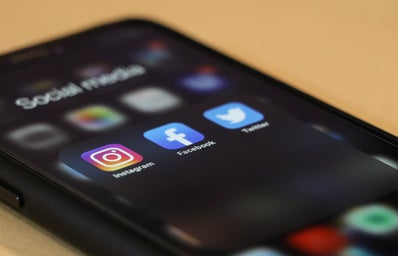Facebook has spent a great deal of time in the headlines recently; its banning of certain advertisements, its £50.5 million fine by UK Watchdog relating to its recent acquisition of Giphy (yes, its monopoly grows greater), its recent ‘Meta’ name change, and most prominently, the damning claims of profit over user safety brought forward by not one but two ex-employee whistleblowers. However, something that’s been pushed from the spotlight is new research revealing Facebook’s role in the worsening climate of online hostility and abuse towards women.
In the BBC’s Panorama episode ‘Online Abuse: Why Do You Hate Me?’, disinformation reporter Marianna Spring outlines several recent studies that demonstrate a rise in the prevalence and severity of online abuse targeting women, attributing it largely to social media platforms’ tendencies to promote hateful and conspiracy-driven content to its users.
Not surprisingly, every study found the worst cases of abuse came from Facebook and Instagram, one of Facebook’s daughter companies. In an analysis of over 94,000 posts and comments on the accounts of contestants from Love Island and Married at First Sight it was found that, despite the two shows having relatively equal ratios of male to female contestants, women received more abuse focused specifically on their gender. Women of colour received the most vicious abuse of all.
Gendered slurs such as ‘s**t’, ‘b***h’ and ‘w***e’ as well as threats of rape and sexual violence were commonly used by men targeting women online. It seems to be a matter of fact that abuse aimed at women is ‘qualitatively different’ to that aimed at men, precisely because of its threats of violence and endless focus on appearance, stereotyped insults and deeply personal attacks.
To find out why misogyny is on the rise, Spring conducted her own experiment to test the true extent of social media’s commitment to fighting online hatred. After creating a fake male profile that engaged with anti-vax accounts, general conspiracy accounts and a few accounts ‘hostile’ towards women, she found that TikTok and Twitter suggested very little anti-women content, YouTube suggested some videos but not many, but that Facebook and Instagram began to suggest more and more anti-women accounts. These accounts actively promoted by Facebook sometimes contained instances of extreme misogyny and hostility towards women.
All this was discovered in just two weeks of minimal activity on the fake account and, to make matters worse, Spring also found that despite initial engagement with anti-vax accounts, they were not recommended to her subsequently. This was likely due to pressure put on Facebook by the public, the press and authorities to crack down on anti-vax disinformation amid covid prevention efforts by governments across the world and proves that Facebook does have the capability to halt the spread of content when they truly want to.
So are they consciously choosing to promote misogynist propaganda?
Spring’s Panorama report came exactly two weeks after Frances Haugen identified herself as the whistleblower who had leaked tens of thousands of Facebook documents to The Wall Street Journal.
Since then, she has testified in front of the US Senate and UK Parliament on her time working for Facebook and the evidence she had collected to prove it was deliberately, knowingly putting profit before user safety. She has stated with absolute certainty that Facebook is ‘unquestionably making hate worse’ throughout the world, and that ‘Facebook has been unwilling to accept even little slivers of profit being sacrificed for safety’.
Because Facebook makes 98% of its profit from advertisements, user engagement is central to its business model. The longer people stay on their phones, glued to its apps, the more money they make. Anger and hatred are addictive emotions and trigger engagement with content more easily than any other emotion. Hatred sells, and Facebook knows it.
Interestingly, her focus and the focus of press reports have been overwhelmingly on issues surrounding child safety and racially driven hate campaigns. Beyond Spring’s documentary and accompanying written articles, there has been a lack of further emphasis on the rise in abuse of women within Facebook’s platforms.
There has also been very little mentioned in the press of Mark Zuckerberg and his personal share in the blame, despite Haugen testifying that he owns over 55% of voting shares in Facebook, and that ‘there is currently no one holding Mark accountable but himself… as the CEO and Chairman of Facebook, he is responsible for those decisions’.
It is exactly this lack of accountability that has allowed Facebook and its users to continue to spread hate and disinformation for so long. Spring opened up about the vicious abuse she’s received during her time as a journalist from men online and how, despite going to the police with a portfolio of evidence against abusive accounts, no progress has been made.
This is also reflective of findings that 97% of accounts reported to Instagram and Twitter for targeting women with hate are not suspended or taken down. It is this repeat inaction of social media platforms, police forces and governments, the total lack of accountability, the absence of external regulation, and Facebook’s unrelenting drive for profits that has undoubtedly put women at risk.
And the lack of focus on women’s safety in reports on Facebook is a serious concern; despite moves finally being made by UK Parliament to pass an Online Safety Bill, nothing of substance has yet been achieved, and the media spotlight on Facebook is already dwindling. On the BBC and the Guardian, coverage has all but stopped with the last significant articles being published over two weeks ago.
News is fleeting, memories are fickle. Facebook has time and time again abused its power as a tech giant to endanger the lives of its three billion users worldwide with no significant consequence. Mark Zuckerberg must be held accountable.
If Frances Haugen’s chilling, powerful testimonies and the statistics revealed by Marianna Spring aren’t enough to spark genuine, policy-changing outrage, then what is? Pressure must persist to overhaul the way social media giants currently operate if meaningful change is to be made.
Words by: Annabel Cossins-Smith
Edited by: Cloe Heaton

